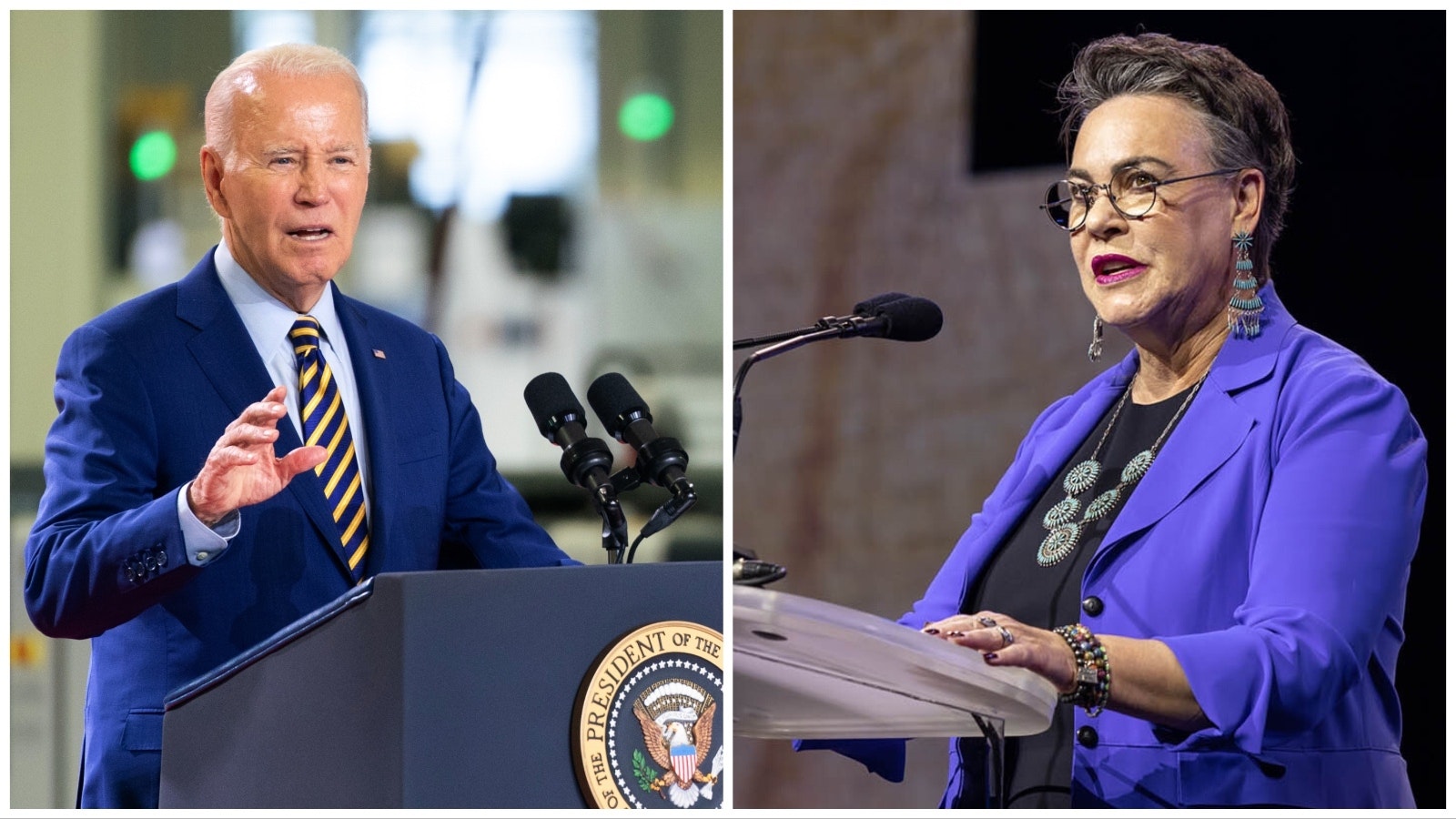Wyoming congresswoman Harriet Hageman has co-sponsored a bill that would bar the Departments of the Interior and Agriculture from prohibiting or regulating the use of lead ammunition or tackle for hunting or fishing on federal land.
The Protecting Access for Hunters and Anglers Act of 2023, brought by Virginia Republican congressman Robert Wittman, makes exceptions for existing regulations and where local officials determine that a decline in wildlife population at a specific unit of federal land or water is primarily caused by the use of lead in ammunition or tackle and the state approves the regulations.
President Joe Biden’s administration has said it will ban by 2026 the use of lead ammunition and fishing tackle at eight wildlife refuges in the Eastern United States.
Hageman told Cowboy State Daily she is proud to have sponsored the legislation, which she sees as protecting the Second Amendment.
“This time, the attack is on the Second Amendment,” Hageman said. “The government overreach of Joe Biden must be stopped.”
Hageman also said on social media last week that she co-sponsored the bill, along with 49 other U.S. representatives, “In response to Biden’s hatred of the Second Amendment.”
This bill would require that any proposed lead ban at a national wildlife refuge (NWR) is compatible with state law and based on scientific evidence related to the specific refuge. There are seven wildlife refuges in Wyoming.
“Sadly, this legislation is necessary because of the Biden administration’s repeated attempts to unconstitutionally create law via bureaucrats issuing ‘rules and guidance’ circumventing Congress,” Hageman said.
The bill has passed out of Hageman’s House Committee on Natural Resources and will next be heard on the floor of the House.
A separate measure to defund the lead ammunition ban was recently passed by the U.S. House of Representatives but stalled in the Senate.
Wyoming’s Republican Sens. Cynthia Lummis and John Barrasso also co-sponsored a nearly identical bill brought by Steve Daines, R-Montana, in the Senate this past spring. There has been no progress on that bill since it was introduced in the Senate.
“Attempts to ban traditional lead ammo and tackle are activist-driven nonsense with no scientific basis,” Lummis said in a statement at the time. “Hunters and anglers have been feeding their families off the land since before Wyoming was a state, and they do not need activists who have never baited a hook or fired a gun telling them how to do it.”
The Other Side
Lead ammunition bans have been proposed because lead bullets and shotgun pellets can poison wildlife, including raptors that eat the remains of big game carcasses.
Avid hunter Bryan Bedrosian of Jackson is a leader of a Wyoming-based group that encourages hunters to consider alternatives to lead ammunition, such as rifle cartridges loaded with copper bullets. Bedrosian previously told Cowboy State Daily that in areas where non-lead hunting ammunition has become popular, the amount of lead contamination and poisoning detected in golden eagles and other raptors is down significantly.
Bedrosian’s group, sportingleadfree.org, opposes lead ammo bans.
“Nobody wants to be told what to do, but at the same time we want to protect the ecosystem,” he said.
Mark Jones, director of hunting programs for Gun Owners of America (GOA), told Cowboy State Daily last week the attempt to ban the use of lead ammunition in some areas could serve as a test case to expand that policy to other federal lands.
GOA also disputes the claim that lead ammo can substantially harm wildlife and thinks the lead bans are just another attempt to discourage participation in hunting and shooting sports, Jones said. Some studies have found that while individual birds or animals might contract lead poisoning, it’s not a threat to wildlife populations in general.
Bedrosian said whether lead ammo can impact wildlife populations as a whole is less than settled science, but he cited a recent study published in Science magazine that found a correlation between the two.
There are alternatives to lead bullets, such as all-copper ammunition, for hunting rifles. But that ammunition is more expensive, so many shooters would find it too costly for regular target practice, Jones said.
“Some of us might go out and buy these bullets just for hunting elk, because you’re not going to need to use many of them,” but shooting hundreds of rounds for target practice wouldn’t be affordable, Jones said. “That’s really the goal of this, to price people out of participating in the shooting sports.”
How Did We Get Here?
On the last day former President Barack Obama was in office, outgoing U.S. Fish and Wildlife Service Director Dan Ashe quietly issued an order announcing a new policy to phase out the use of lead ammunition and lead fishing tackle on all federal lands by 2022. This was quickly revoked by former President Donald Trump’s administration when he took office.
In 2020 under Trump, the Department of the Interior (DOI) announced it was expanding hunting and fishing opportunities on 2.3 million acres across 147 national wildlife refuges and national fish hatcheries. In response, the Center for Biological Diversity filed a lawsuit against the DOI in 2021. In its lawsuit, the environmental group stated the effects of lead ammunition and tackle would negatively impact endangered species that inhabit the system.
Last year under Biden, the U.S. Fish and Wildlife finalized a plan to open a much more reduced expansion that included 40,000 acres of federal land on refuges to hunting and fishing activities. However, the agency banned the use of lead ammunition or tackle on these lands.
Also that year, the U.S. Fish and Wildlife Service and Center for Biological Diversity reached a settlement that mandated the federal government to take steps to protect wildlife “harmed by expanded hunting and fishing” on refuges. Also included in the settlement were U.S. Fish and Wildlife promises to expand lead ammunition bans as a part of the 2023-2024 annual rule governing management of the system.
In June, U.S. Fish and Wildlife followed through on the settlement agreement by proposing to ban the use of lead ammunition and tackle by 2026 in refuge areas.
Leo Wolfson can be reached at leo@cowboystatedaily.com.





